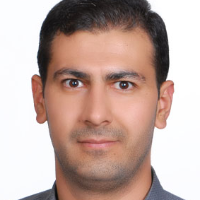Design of post-traumatic growth model in burn-compatible patients
Author(s):
Article Type:
Research/Original Article (دارای رتبه معتبر)
Abstract:
The present study was conducted with the aim of design the post-traumatic growth pattern in burn patients. The qualitative research method was based on grounded theory, and the statistical population of the research was burn patients who were identified and introduced to the researchers through the support Association for Support of Burned Patients (Phoenix), Shahid Motahari Clinic and Hospital in 2019. The sampling method was initially purposeful and gradually continued as theoretical sampling. Based on the theoretical data saturation method, the sample size was 15 people who were interviewed. The post-traumatic growth questionnaire was used for screening, and those who scored higher than the average in this scale and met other entry criteria were selected. All the interviews were analyzed with Granheim and Landmann content analysis approach and with open, central and selective coding. The findings related to the concepts of post-traumatic growth included the main concepts of positive religious beliefs and a new outlook on life, The second finding in relation to the influencing factors (barriers and facilitators) of post-traumatic growth showed that the barriers include the main concepts of society's reactions, individual limitations, lifestyle disorders and individual mental states, and the facilitators include multifocal support, altruism. , motivation, modeling, mental and social security, dynamic interaction with others. The last finding of the research regarding the process of post-traumatic growth in burn patients showed that this process includes the main concepts of positive developments, spiritual changes and personal strength (resilience). The results of this research can be used as a model for formulating therapeutic and rehabilitation interventions in accordance with the existing cultural context for burn patients.
Keywords:
Language:
Persian
Published:
journal of Cultural Psychology, Volume:7 Issue: 1, 2023
Pages:
375 to 400
https://magiran.com/p2676484
مقالات دیگری از این نویسنده (گان)
-
Identification of factors influencing domestic violence against Iranian women with Afghan immigrant spouses
Sima Mortazavi, *, Hossein Eskandari, Ahmad Borjali, Mahdi Khanjani
Journal of Psychological Sciences, -
Existential distress in palliative care of cancer patients at the end of life: a systematic review
Hossein Eskandari, , Adeleh Rezagholizadeh Shirvan, Mohammad Asgari, Neda Shahvaroughi Farahani*
Tehran University Medical Journal, -
Prediction of post-traumatic growth based on religious commitment and life expectancy of patients with types cancer
Mohammad Hosein Mortezaie, *
Rooyesh-e-Ravanshenasi, -
Comparison of Learning Styles, Study Styles and Time Management in Gifted and Non-Gifted Students
Abdollah Moatamedy, Soghra Ebrahimi Qavam, *, Hamed Chopan, Yoones Dostian
Journal of Educational Psychology,



